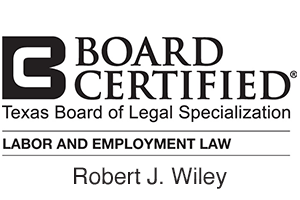in Austin, Texas
Race Discrimination
Discrimination Based on Race Is Prohibited
The landmark 1964 Civil Rights Act prohibited discrimination based on race in the workplace. Nearly 60 years later, however, race discrimination sadly remains all too common in the United States. Even as the nation rapidly diversifies (in 2021, nearly 60 percent of Texans identified as part of a minority race or ethnicity), workers are still regularly treated poorly and discriminated against because of their race. According to a Gallup poll, roughly one out of every four Black employees, and a similar percentage of Hispanic employees, reported experiencing workplace discrimination in 2021. Today, such discrimination is prohibited under Title VII of the Civil Rights Act, 42 U.S.C. § 1981, and the Texas Labor Code, which make it illegal for an employer to fire, demote, or affect the benefits of an employee because of their race.
Racial Discrimination Takes Many Forms
Overt, unsubtle race-based discrimination still exists. However, the average worker is much more likely to encounter covert discrimination that is harder to detect or prove. One common example of subtle discrimination is the “good ol’ boys” system. This phenomenon is characterized by the existence of an unofficial “club” of (often older) white men, whose members maintain informal connections that effectively ensure that only they have access to promotions and job opportunities. Motivated, highly qualified workers who are not in that group will find their career progression artificially halted. If employees of one race are regularly disciplined for minor infractions (e.g., clocking in 2 minutes late) while those of another race are not punished when they do the same thing, that is another example of subtle racial discrimination. Policies that do not appear to involve race but disproportionately affect one race or another (such as grooming policies requiring women to have straight hair, which disproportionately affects Black women) are another common way that employers subtly violate the law. If you have been affected by this type of discrimination, Austin Employment Lawyers, P.C.’s Austin race discrimination lawyers can help you bring your claim.
The law may sometimes require that an adverse action be taken against you because of your race before you can bring a claim. Examples of adverse actions include firing, demotion, failure to promote, or loss of benefits. For example, if a qualified Black employee notices that her less qualified white coworkers are repeatedly promoted over her, she has suffered an adverse action. Likewise, if an employer grants extra vacation hours to its Indian employees every year, and not to anybody else, that constitutes adverse action against the employees who do not get the extra time. If you suffer discrimination in the workplace and it results in an adverse action against you, your rights may have been violated.
Workers may sometimes face severe racial harassment even when no other action affecting their pay or other benefits has been taken against them. If the harassment in their workplace is severe or pervasive enough to change the terms and conditions of their employment, their employer may be guilty of discrimination by creating a hostile environment in the workplace. There is no requirement that an employer ultimately interfere with a worker’s benefits or employment status when discussing hostile environment claims. Using racial slurs such as the n-word, making comments or jokes about a person’s skin color, and referencing stereotypes about different races are all common examples of discrimination that can create a hostile environment.
When Can You Bring a Claim?
You generally have anywhere from 180 days (under Texas law) to 300 days (under Title VII) to 2 to 4 years (under Section 1981) to make a claim, depending on the details of your case. These time limits are unforgiving: the clock often starts as soon as you become aware or should have become aware of discriminatory actions. Therefore, it’s important to talk to a lawyer immediately if you have been a victim of race-based discrimination. If you think you’ve been discriminated against or retaliated against, or if you notice patterns of racial discrimination in your workplace, please contact one of our Austin race discrimination lawyers today. You can do so by filling out our contact form or calling our office at (512) 271-5527.







